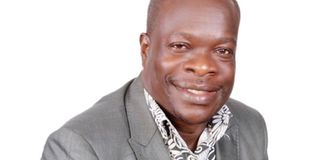Encourage use of local languages at school, home

Robert Musiitwa
What you need to know:
- Failure to recognise and promote our local language is a systematic way of destroying our cultural identity and heritage.
- Language is fundamental to cultural identity.
In 2007, the United Nations General Assembly called upon member’s states to promote the preservation and protection of all languages of the world. By the same resolution, the General Assembly proclaimed 2008 as the international year of languages to promote unity in diversity and the international understanding through multilingualism and multiculturalism.
In 2015 and 2016, the Ministry of Gender Labour and Social Development and Uganda National Cultural Centre together with the Luganda/Lusoga/Lugwere cross border language commission successfully organised and commemorated the International Mother Tongue Day here in Uganda. Internationally, the day is commemorated annually on February 21. This year, International Mother Tongue Day will be commemorated at Uganda National Culture Centre – the National Theatre under the theme “Promoting use of local languages in learning for National development”. Activities of the day among others will include: Exhibitions, community and school dialogues, open discussion and performances. The objectives this year are:
• To raise awareness on the role of local languages in national development
• The role of local languages in improving learning outcomes
• To advocate for the use of local languages in development ventures
• Identify and appreciate the role of local languages in development agenda.
• Promotion of local language as a channel for reconciliation and peace building
Many of us remember a councilor who after successfully being elected to office struggled to speak English while searing in. I t wondered why she was not allowed to take the oath in a language she was conversant with? While others thought that she is backward, little did they know that she floored the competitors who speak English.
As the mentality is, we think that failure to express oneself in English for Uganda’s case is a sign of illiteracy. During our school days, speaking our mother tongue while at school was an offence. Vernacular speakers would be punished. The law enforcers who happened to be our teachers had no idea that denying us the right to communicate in our mother tongues was denying us the right to cultural expression.
Failure to recognise and promote our local language is a systematic way of destroying our cultural identity and heritage. When we have no cultural identity and heritage it means we have less negotiation powers which only results into being cheated and eventually we cease to exist.
Language is fundamental to cultural identity. This is so for people everywhere. This is what defines us and makes us unique from each other. It is for this reason that when we receive foreign dignitaries, they address us in their mother tongue. I clearly remember sometime last year when we hosted President Park Geun-hye and Recep Erdogan from South Korea and Turkey respectively, they all spoke in their mother tongue to the extent of holding discussions to which every one of us followed through translators.
Language is intrinsic to the expression of culture. Besides identity and heritage, it is a means of communicating values, beliefs and customs, fosters feelings and solidarity. In addition, it is the means by which culture and traditions and shared values are conveyed and preserved.
Uganda being a State party to the United Nations, Educational, Scientific and Cultural Organisation (UNESCO) Convention on the protection and promotion of the diversity of cultural expressions, through the ministry of Education and National Curriculum Centre, I propose that they integrated our local languages regionally on the syllabus and also develop the languages which are not developed yet to learning standards. Allocate a budget to encourage people to write in our mother tongues. Simplify scientific jargon by translating them into our mother tongues. Translate the oaths we take in courts of law, churches during holy matrimony, national functions, etc. into a language we identify with.
Countries like China, Germany, Japan and others are developed because they learnt, taught, instructed, created and also thought in their mother tongues. Someone might argue that for instance if I am a musoga and speak Lusoga, I will only thrive in Busoga. If it were so, then we would not have bilateral trade discussions with non-English speaking countries which proudly use their own languages while we struggle to speak English.
As we celebrate International Mother Tongue Day tomorrow, let us endeavour to talk to our children in our local languages, buy them story books in their mother tongue.
Language is the vehicle of our intangible cultural heritage. It is, therefore, crucial that we do not only keep our language alive but also hold it with high esteem. Let us encourage our children to speak our mother tongues. This is the only and best way knowledge transmission from generation to generation will be done and also safeguard our oral culture. By doing so, we will preserve, promote and popularise our language, hence culture.
Mr Musiitwa is the public relations officer, Uganda National Cultural Centre




